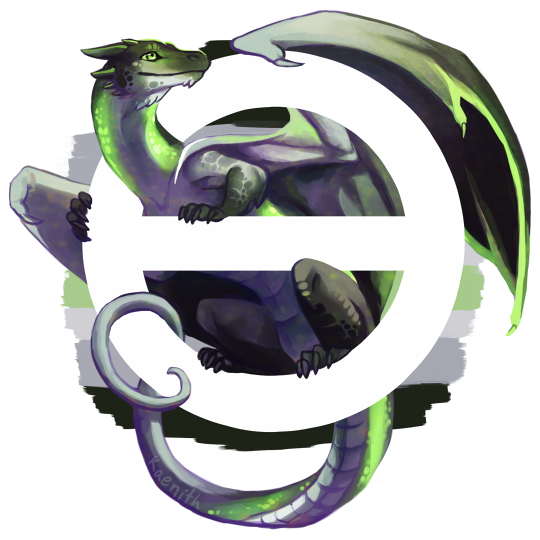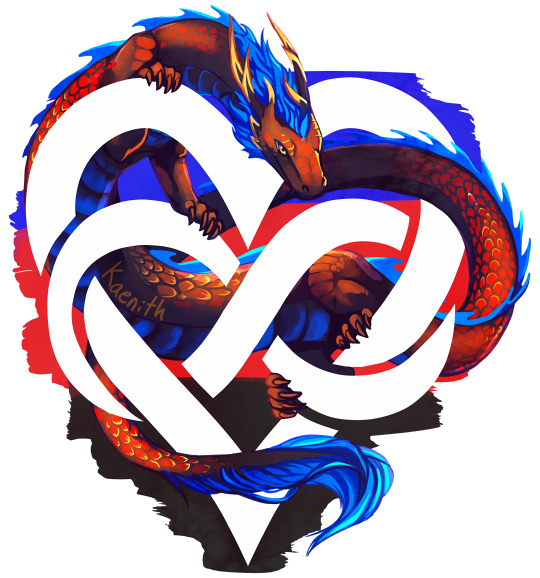
If you pitch me two similar-sounding books, but one is queer? Then that’s the one I’m picking.
And I can’t figure out why.
Of course, it’s a given that representation matters in fiction – I’m not here to debate that; as far as I’m concerned, it’s a fact, not an opinion. This post isn’t about that.
But I’m an agender, asexual, polyamorous human-shaped person. Representation, for me specifically, is a non-issue – at least in the Fantasy genre, which is what I read almost exclusively, there aren’t characters like me.
Well, that’s not true: there’s one, the character Always Falling from MCA Hogarth’s Twin Kingdoms Romances series. (Which I encourage you to check out, because seriously, they’re some of my favourite books ever.)
But still.
One.

And the thing is, I don’t mind! I’m not looking for fictional characters that tick all the same boxes I do, although I wouldn’t mind seeing more. But it’s rare to find characters who even tick one of those boxes – asexual characters, agender characters, poly characters; they exist (and I gather there’s more of them outside of Fantasy?) but they’re an awful lot rarer than diamonds. And while I’ll happily give a book that features one of those labels a try, I’m equally happy to read about other flavours of queerness, ones that don’t reflect me at all.
My point is, for me, the preference and desire for queer fic isn’t tied to representation, because people like me are almost never represented.
So…why the preference?
Because I don’t read ‘queer stories’. I specifically want stories that happen to be about queer people having adventures, where their being queer is incidental to the story itself. I don’t think it’s a fetishisation thing, because I’m disinterested in romantic subplots and skip over sex scenes. I don’t think it’s about the ‘queer experience’, because I prefer secondary-world fantasy to stories set in our world – where, if the author has done their worldbuilding properly, the ‘queer experience’ should be fairly different to our own.
So if I want queerness that is incidental to the plot itself, why does it matter so much? If what I’m looking for is good worldbuilding and a good story – and a writing style that works for me – shouldn’t I be just as excited about an upcoming non-queer book as I am a queer one?
But I’m not. In fact, I’ll even pick up books whose premises sound like they won’t appeal to me, if I’m promised queer content.
And that doesn’t seem like rational behaviour.

I’ve wracked my brains about this for months – I wrote the first draft of this post last year – and the only thing I can come up with is this: if a writer is willing to buck tradition by writing queer characters, then it follows that they might be more likely to go beyond the norms in other aspects of their book as well. And I like my Fantasy inventive, unique and weird. So it makes sense to seek out writers/stories that are maybe more likely to push boundaries in their storytelling.
Of course, this isn’t anything like a sure thing, especially in certain sub-genres (paranormal romance jumps out at me as one where this ‘rule’ definitely fails more often than not). But, looking at my bookshelf, it does tentatively seem like there might be something to it.
I once read a theory that trans people (and, I think, all non-binary folx) provide an evolutionary benefit by being more inclined to thinking outside the box – a vital quality if your tribe is facing some kind of problem tradition can’t handle. Now, I haven’t seen science or studies to back any of that up, but even if we extend this to include all/most queer peeps…to me that would mean that it’s queer authors who are more likely to tell new kinds of stories. The sexualities of their characters would be irrelevant.
It’s true that different countries/cultures have very distinct literary traditions, and it’s not that hard to figure out why. But can we really say that applies to the queer community? It’s not like we’re one cohesive group – far from it! I’m not sure we can really say there’s a queer style/tradition of writing/storytelling – not in the way that there’s a distinct difference between American-written fantasy and Australian-written fantasy. (And if you don’t believe me, pick up a few Australian authors, because wow. When you’re used to American-and-British fantasy, the Australian stuff is mindblowingly cool.)
I feel far more confident saying that authors of colour write different stories from white authors, or write the same stories very differently. But maybe Black authors, for example, have a lot more shared experiences in common than queer people across the spectrum do with each other. How much do a white, cis gay Republican and a trans woman of colour really have in common? Would the stories they choose to tell have any similarities at all?
Do queer writers – as a whole – really write distinctly different stories from heteronormative authors? I have no idea – and I have no idea how you’d even begin to go about trying to figure that out. (For one thing, how do you define ‘different’?) I know a lot of my favourite authors are some flavour of queer. Given how picky I am in my reading tastes, that does seem like a big coincidence.
But maybe it is just coincidence. It’s not as though the books in question have a whole lot in common, apart from being fantasy. They don’t all use the same tropes, or have similar characters, or even fit into the same sub-genres.
And anyway, there being queer characters in a book doesn’t mean the author is queer – even if we did agree that queer writers are more likely to write non-traditional, boundary-pushing fantasy. Which we can’t say is true, at all. But even if it was true…it still doesn’t explain why I reach for books with queer content. If it was true, it would make more sense for me to go looking for queer writers.
And I don’t. Just like I don’t deliberately seek out women writers. And yet…I seem to end up reading queer and female writers almost exclusively. Despite not going looking for them.
But to circle back to my premise – queer characters raise the chances of the author writing a more original story – well, honestly, I can’t figure out any other reason why I’d choose the queer story over the heteronormative one even when the premises are identical. Because I do do that, over and over again.
What about you? Why do you want to see queer rep in the books you read? Why does it matter to you? (And how much does it matter?)
Leave a Reply